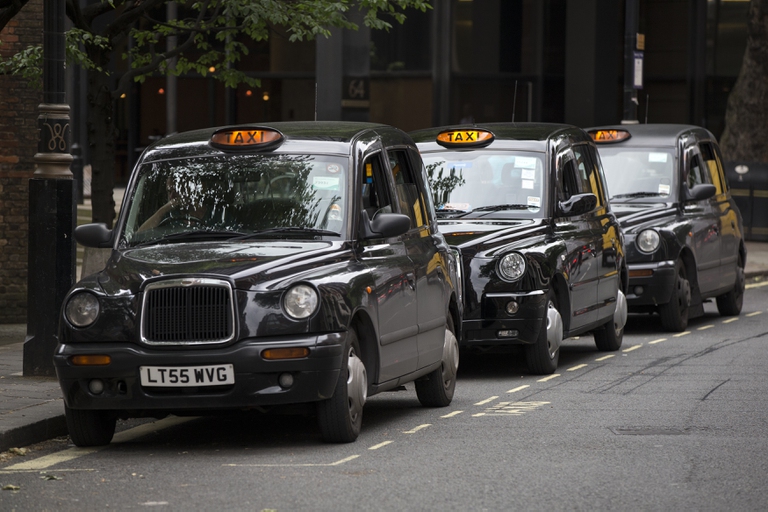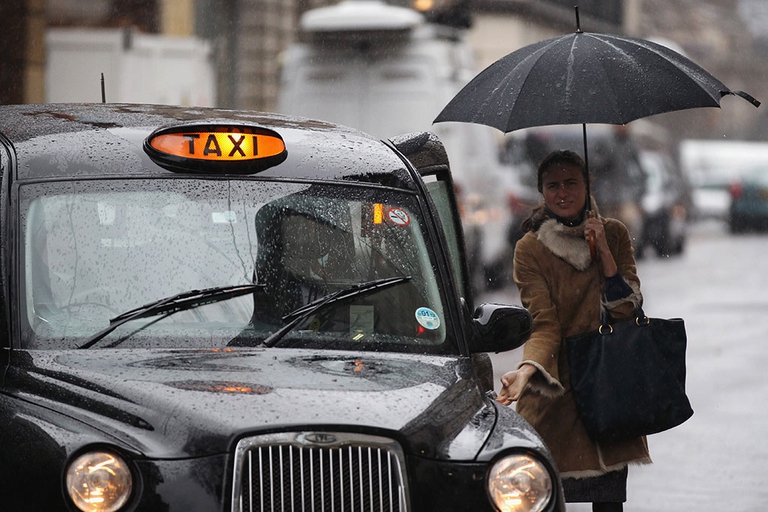
Sharon Lavigne, one of the six winners of the 2021 Goldman Environmental Prize, is fighting to protect her community from plastics corporations.
London reaches its objective of reducing pollution by licensing the Metrocab, a new generation of the city’s iconic taxi powered by electric engines. Metrocab is still black and more or less recalls the design of the ultra-traditional London taxi but, unlike its historic ancestor, it emits 75% less CO2. For more than a
London reaches its objective of reducing pollution by licensing the Metrocab, a new generation of the city’s iconic taxi powered by electric engines. Metrocab is still black and more or less recalls the design of the ultra-traditional London taxi but, unlike its historic ancestor, it emits 75% less CO2.
For more than a year, Transport for London, the company that manages the London transport system, has been studying the environmental impact of the new electric taxis. It has finally granted the first licenses in the world for the circulation of these vehicles. Charles Masefield, President of Metrocab, says he’s satisfied, especially seeing as electric taxis have received many recognitions, including from Mayor Boris Johnson, and have been welcomed even by the most nostalgic users notwithstanding changes to the original design.
The new vehicle will travel the streets of London, a taxi similar but not the same as the one found on all London souvenirs. Alterations include: more spacious interiors and a sun roof, which is perfects for tourists and city aficionados. A retro look for a vehicle that embraces the most innovative technologies. Metrocabs are equipped with LED displays connected to an entertainment and information system, USB ports and plugs to charge passengers’ smartphones and computers.
The Rolls-Royce of taxis works thanks to two electric and one oil engine plugged into a generator that recharges batteries when they aren’t connected to a power source, making the vehicle three times more efficient than the old London taxi. Silent, ecological, comfortable and cheaper, the new fleet of London taxis is destined to impress.
Siamo anche su WhatsApp. Segui il canale ufficiale LifeGate per restare aggiornata, aggiornato sulle ultime notizie e sulle nostre attività.
![]()
Quest'opera è distribuita con Licenza Creative Commons Attribuzione - Non commerciale - Non opere derivate 4.0 Internazionale.
Sharon Lavigne, one of the six winners of the 2021 Goldman Environmental Prize, is fighting to protect her community from plastics corporations.
Plastic pollution is airborne too. Microplastics are being carried across continents by the wind, as a recent study reveals.
Levels of particulates in New Delhi in 2020 were once again far above safety thresholds, with extremely serious health consequences for its citizens.
A major oil spill in the Ecuadorian Amazon in April has left the Coca River polluted. The indigenous Kichwa are suing the companies whose pipelines broke.
Molecules that eat up plastic waste, including PET bottles, may soon become widely used as scientists leap ahead in developing new super enzymes.
In Italy’s Land of Fires between Naples and Caserta, activists like Carmen Medaglia are fighting to promote new ways of managing waste.
Toxic substances in Kamchatka’s waters have killed 95% of marine fauna and caused health problems for surfers. The causes, however, are still unknown.
A Magellanic penguin was found lifeless on a Brazilian beach: in its stomach, an N95 face mask. Researchers believe the animal died from ingesting it.
The drop in air pollution during worldwide lockdowns helped prevent thousands of premature deaths. But the situation is returning to pre-crisis levels.









